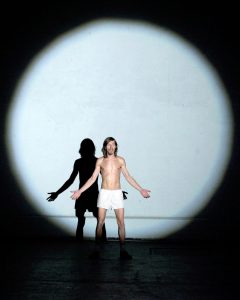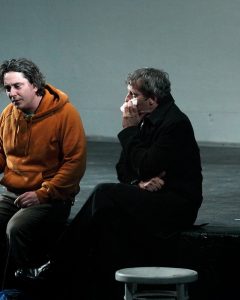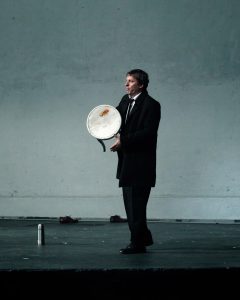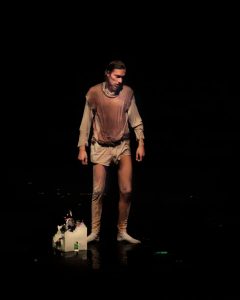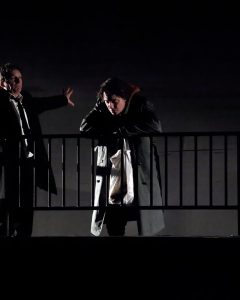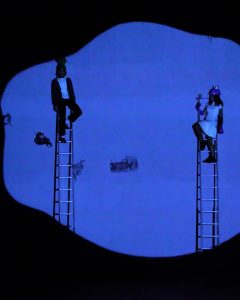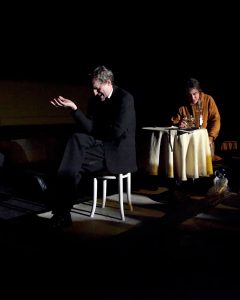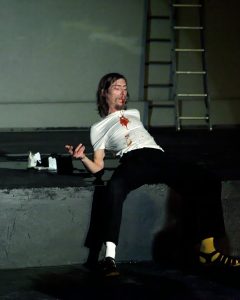Walser, the Assistant
length: 90 minutes
The audience will see something ugly and beautiful at the same time, and the beauty will in the end prevail over the ugliness. The title of the play is Laugh to Death. Let’s hope the theatre-goers will come in great numbers and buy their tickets. If not, I don’t care: the indifference of the ignorant audience is not going to kill me.
The production is based on a synthesis of texts by Robert Walser, interpretations of his works, as well as a novel by Gert Hoffmann, Robert Walser, a Novelist, Parts With the Literary Union. Robert Walser was a literary outsider of genius. In his works, both his lost soul and a peculiar perception of the world around him are presented. The production has two layers: the first shows a dialogue between Robert Walser and a shop owner, who has invited him for a literary night, where Walser is to do a reading of his work; the second consists of passages from Walser’s works.
In what is seemingly a peaceful, simple and gentle story emerge some of the universal themes of the complexity of human existence, the inability to achieve the ideal, as well as themes of evil rooted in human ignorance.
Walser, the Aide is part of the main dramaturgical line of Studio Hrdinů focusing on the author’s theatre projects. The leitmotif is individuality, in particular individuality of an artist in critical situations and his role in society. Respecting the aesthetics of Studio Hrdinů, the form is a conceptual synthesis of theatre and visual art.
Duration: 90 minutes
Rober Walser (1878- 1956) was a Swiss novelist and lyrical poet writing in German. He wanted to become an actor but his plan fell through. He had many jobs and every time he was to be promoted, he quit the job. In the course of 9 years he changed jobs 17 times. In 1905 – 1913 he lived as a freelance writer, then he became a tramp. He lived in seclusion and fell out with most of his friends. In 1929, he was hospitalized in an asylum in Waldau close to Berlin as he was suffering from depression and had suicidal tendencies. In 1933, he was diagnosed with a mental disorder and moved to Herisan where he spent the rest of his life.
